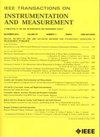利用脑电图信号检测阿尔茨海默病的可分离双锥体特征注意网络
IF 5.6
2区 工程技术
Q1 ENGINEERING, ELECTRICAL & ELECTRONIC
IEEE Transactions on Instrumentation and Measurement
Pub Date : 2025-04-28
DOI:10.1109/TIM.2025.3565100
引用次数: 0
摘要
信号分类在许多临床领域至关重要,包括阿尔茨海默病(AD)的诊断,这是一种常见的神经系统疾病,其特征是记忆丧失和语言困难。本研究的重点是如何使用脑电图(EEG)信号来区分阿尔茨海默病患者和健康人,这是一种无创、低成本的诊断方法。我们描述了一种新的可分离双金字塔特征关注网络(SBPFAN),该网络使用可分离和扩张卷积(DCs)从8秒脑电信号片段的二维图像中提取多尺度深度属性。每个金字塔级别都包含一个特征注意块(FAB),以强调值得注意的广告相关特征。将FAB特征图通过多个密集层进行拼接处理后,采用softmax层进行分类。在三种不同的实验设置中使用了两个数据集——受试者依赖、受试者独立和跨数据集——来估计SBPFAN的性能。实验结果表明,SBPFAN是有效的,在医学和工业检测AD方面具有重要的应用潜力。本文章由计算机程序翻译,如有差异,请以英文原文为准。
A Separable Bi-Pyramidal Feature Attention Network to Detect Alzheimer’s Using Electroencephalographic Signals
Signal categorization is crucial in many clinical areas, including the diagnosis of Alzheimer’s disease (AD), a common neurological disorder marked by symptoms such as memory loss and speech difficulties. This study focuses on how to distinguish between Alzheimer’s patients and healthy persons using electroencephalogram (EEG) signals, a noninvasive, low-cost diagnostic approach. We describe a novel separable bi-pyramidal feature attentive network (SBPFAN) that extracts multiscale deep attributes from 2-D images of 8-s EEG segments using separable and dilated convolutions (DCs). A feature attention block (FAB) is incorporated at each pyramid level to emphasize notable AD-related characteristics. After concatenating and processing the FAB feature maps through several dense layers, a softmax layer is employed for classification. Two datasets are used in three different experimental setups—subject-dependent, subject-independent, and cross-dataset—to estimate SBPFAN’s performance. Experimental results demonstrate that SBPFAN is effective and holds significant potential for medical and industrial applications in AD detection.
求助全文
通过发布文献求助,成功后即可免费获取论文全文。
去求助
来源期刊

IEEE Transactions on Instrumentation and Measurement
工程技术-工程:电子与电气
CiteScore
9.00
自引率
23.20%
发文量
1294
审稿时长
3.9 months
期刊介绍:
Papers are sought that address innovative solutions to the development and use of electrical and electronic instruments and equipment to measure, monitor and/or record physical phenomena for the purpose of advancing measurement science, methods, functionality and applications. The scope of these papers may encompass: (1) theory, methodology, and practice of measurement; (2) design, development and evaluation of instrumentation and measurement systems and components used in generating, acquiring, conditioning and processing signals; (3) analysis, representation, display, and preservation of the information obtained from a set of measurements; and (4) scientific and technical support to establishment and maintenance of technical standards in the field of Instrumentation and Measurement.
 求助内容:
求助内容: 应助结果提醒方式:
应助结果提醒方式:


